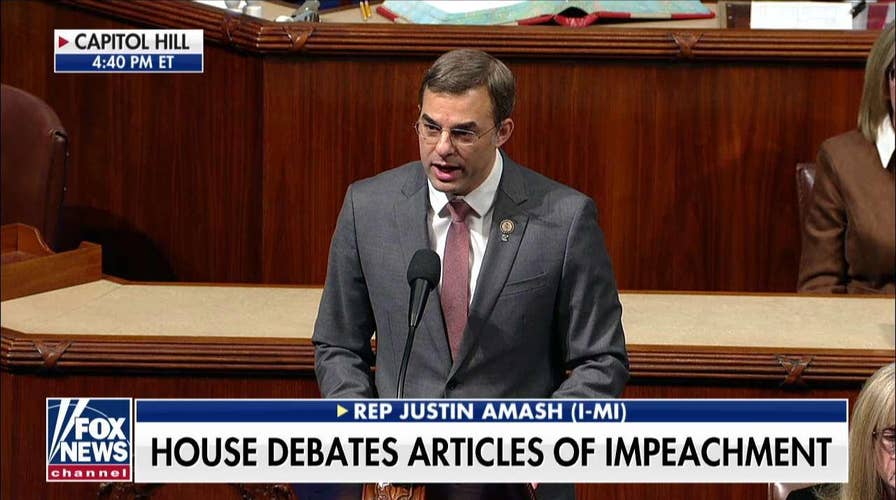Rep. Justin Amash, I-Mich., tweeted Monday night that he is considering a 2020 presidential run as "another option" for Americans who are dissatisfied with President Trump's leadership and also do not want to vote for presumptive Democratic nominee Joe Biden.
Amash, who last summer refused to rule out a White House run in the immediate wake of his exit from the GOP, came into Congress riding the 2010 Tea Party wave and had long been one of the most libertarian members of the Republican Party. He left the GOP last year, saying in a Washington Post op-ed that it was due to the polarized environment in Congress. But Amash had also long been one of the most critical Republicans of the president and later voted for both articles of impeachment against Trump passed by the House of Representatives last year.
SANDERS CAMPAIGN REPS REVOLT AFTER SANDERS ENDORSES BIDEN, OPENLY ATTACK FORMER VICE PRESIDENT
"Americans who believe in limited government deserve another option," the Michigan lawmaker tweeted Monday in response to a quote from Trump on the president's "total" authority.
A Twitter user responded to the post hoping Amash might be the other option, to which he responded that he was considering it.
"Thanks. I'm looking at it closely this week," Amash said.
REP. JUSTIN AMASH ANNOUNCES HE IS LEAVING GOP; TRUMP CALLS IT 'GREAT NEWS'
With Joe Biden already the Democrats' presumptive nominee and Trump having locked up enough delegates to clinch the Republican nomination, Amash's only option for a presidential run at this point would be as a third-party candidate.
No candidate who was not a member of one of the two major parties has won a presidential election in modern American history, and Amash will almost certainly not be the first. Republicans overwhelmingly support the president and Democrats would be unlikely to vote for the congressman who was a member of the right wing of the GOP before he left the party.
But an Amash candidacy would amount to one of the highest-profile third-party runs in modern history, given his position as a sitting member of Congress. If he manages to gain even marginal support from Republicans and independents who might otherwise vote for Trump but dislike his tone and leadership style, it could harm the president's chances in swing states that saw a razor-thin margin in 2016.
CLICK HERE TO GET THE FOX NEWS APP
Some Democrats still blame third-party candidates Jill Stein, of the Green Party, and Gary Johnson, a Libertarian, for Hillary Clinton's downfall in 2016 after multiple swing states were decided by just a few thousand votes.
The last third-party candidate to garner significant support for a presidential campaign was Ross Perot, who ran in 1992 and 1996. His best performance was in 1992, when he secured almost 19 percent of the national popular vote.






















